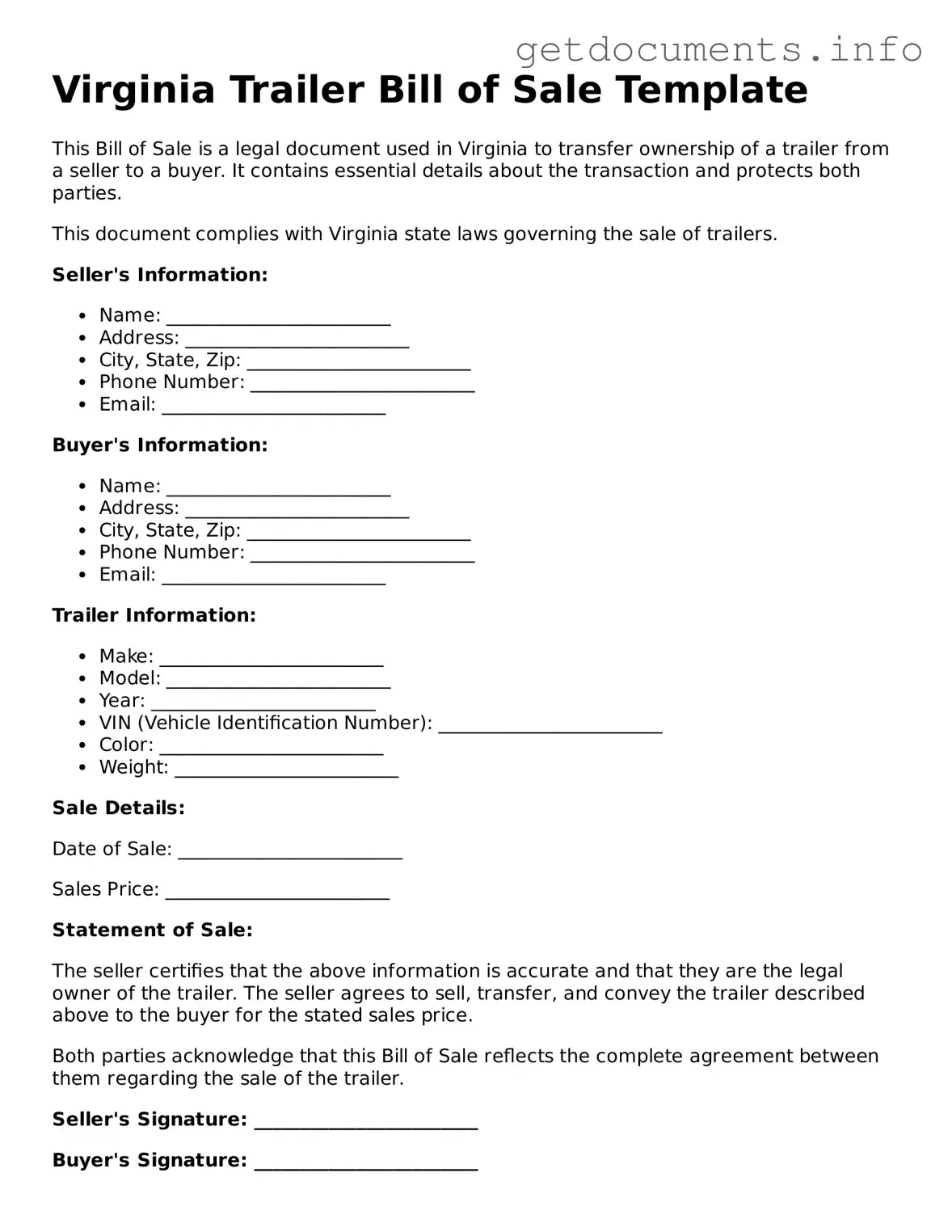Free Trailer Bill of Sale Template for Virginia
The Virginia Trailer Bill of Sale form is a legal document that records the transfer of ownership of a trailer from one party to another. This form is essential for both buyers and sellers, as it provides proof of the transaction and details about the trailer being sold. To ensure a smooth transfer, fill out the form by clicking the button below.
Access Trailer Bill of Sale Editor

Free Trailer Bill of Sale Template for Virginia
Access Trailer Bill of Sale Editor
Got places to be? Complete the form fast
Fill out Trailer Bill of Sale online and avoid printing or scanning.
Access Trailer Bill of Sale Editor
or
⇩ PDF File
